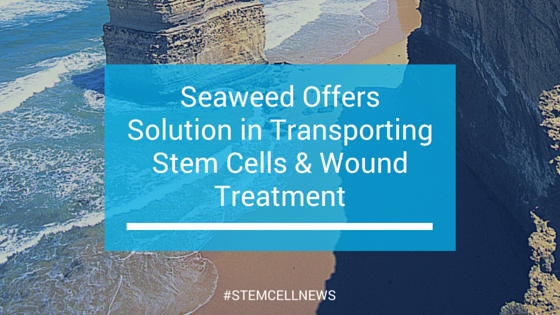
New research published in the journal Stem Cells Translational Medicine suggests that alginate gel can be used to help keep stem cells alive until they are used in a transplant. Authored by Professor Che Connon and Dr. Stephen Swioklo, the study found that stem cells surrounded by the algae are protected from damage until they can be used to treat a wound. The approach may help doctors in transporting stem cells.
Dr. Connon, who is a professor of Tissue Engineering at Newcastle University, explains: “The stem cells are surrounded by an alginate gel which protects them from the environment – a bit like frogspawn. We found them unchanged even after three days at room temperature. This has lots of advantages and applications. For example, we have used them to make a bandage which contains human stem cells which could be applied to a wound such as an ulcer or burn to speed up the healing process.”
Scientists have already discovered that mesenchymal stem cells (MSCs) derived from fatty tissue can help wounds heal. Mesenchymal stem cells reduce inflammation at the site of the injury, which helps the wound close faster. One difficulty with the use of MSCs has been maintaining viability until they could be transplanted. Transporting stem cells was always tricky because have they to be kept in very specific atmospheric conditions and only survive for a set period.
By encasing mesenchymal stem cells in alginate gel, researchers were able to extend their lifespan by up to three days in ambient temperatures. This makes transporting stem cells much easier and can increase the number of viable stem cells for transplantation.
Alginate is a natural substance extracted from seaweed. It is commonly used in a range of food products and is already used in the healthcare sector for wound dressings and treating burns. After three days in temperatures of between 4 and 21 degrees Celsius, 90% of the alginate treated stem cells were viable. Doctors usually consider a sample viable for transplantation if 70% of stem cells are viable.
The alginate protected the stem cells from environmental exposure and prevented them from expanding at room temperature and being destroyed. This research could make transporting stem cells much easier in the future.
Source: Seaweed offers the solution to transporting stem cells and wound treatment
{{cta(‘010124f3-c9bc-4a23-b9fc-74953e6288c9’)}}


